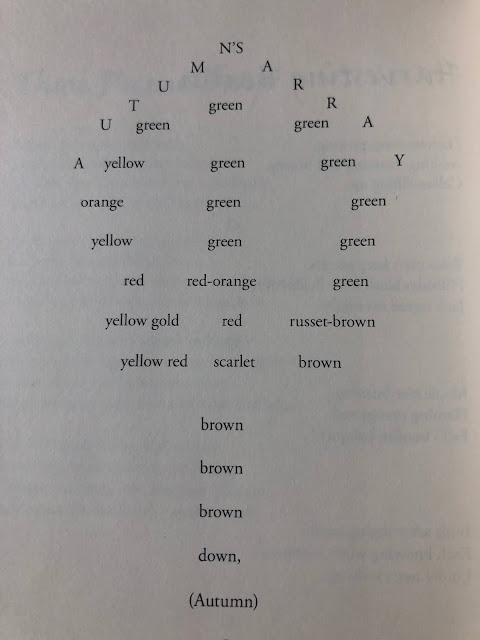Back in 2016, I posted two poems by Susan Moorhead, a woman I "met" via blogging. She no longer writes her blog but it is still up so you may visit here. I have remained in touch with her via instagram. This poem is from her 2021 book.
Common Wonders
In a dark time, when I became lost, the feelings
for everyone I had loved and for everything that once
held meaning left. Light of any kind was missing
down at the bottom amid the skeleton fish and nameless
things. I stayed lost until some lift of grace willed me
back. When I returned, it was the smallest of things
that held my hand. The play of colors in a quilt, flavor
of a neighbor's offering of soup and bread. Green outside
the windows. The first thrashing thunderstorm, lightning
brash in the sky. The quilt wrapped around me. I felt
the rhythm of the hours, clockwork steady, as I stumbled
back from grief where time does not exist. People want
to find a lesson in everything, but what is the takeaway
of sorrow? I could say it was the resilience of my heart,
the will to rise that carried me, but no. It was the small
wonders revealed, moment after moment. Every bird flying,
each slowly whirling cloud, the scatters of light spilling
through tree branches, the hush in the yard as evening fell.
Noticing these small graces allowed the terrible rift in me
to mend. One evening, reading to my child, I heard tenderness
in my voice replace the rote dutiful tone that grief had
assigned me. I felt the ache of love return, common, wonderful.
















